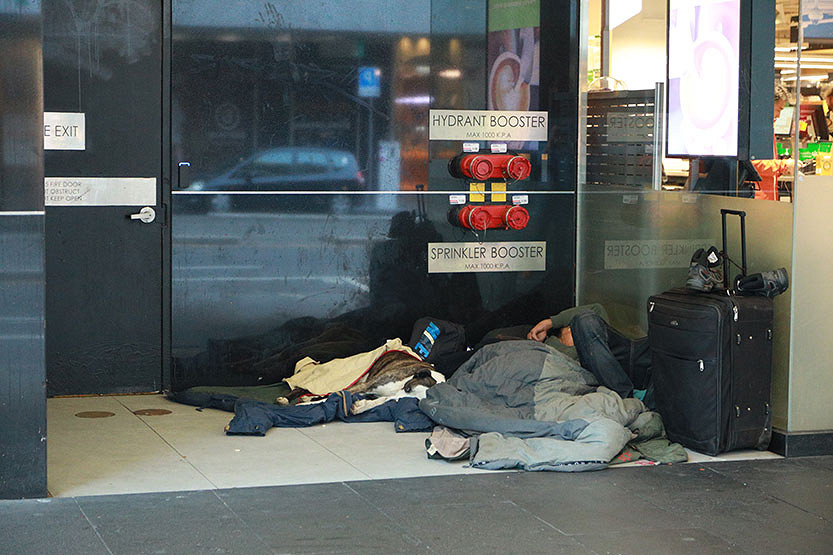Lock them out, lock them up or lock them in?
By Major Brendan Nottle
It has been really interesting hearing the increased anger and frustration in the conversations that I have been having with people around the city in recent times.
Some people are claiming that the current plight of the city or their business is solely due to the presence of rough sleepers and people that are vulnerable.
If we continue to judge and focus blame on a particular group of people, then I can see absolutely no good or positive thing coming from this behaviour.
Rough sleepers and people who are dealing with complex mental health issues often describe feeling “locked out”.
They are locked out from family, a meaningful sense of community, education, training and employment. For many of them, their experience is that when they are locked out, it is often a very short path until they are locked up.
When they are locked up, it is often a very difficult, if not impossible, path for them to rebuild their lives and re-integrate into society.
That is why it is incumbent on all of us to change the narrative and to begin to play our small part to lock the vulnerable into supportive community, housing with appropriate support and to create meaningful pathways into practical training and opportunities that will lead to employment, or at least volunteering opportunities.
You may be reading this and thinking, “what could I possibly do to create that level of difference?”
Well, it doesn’t actually take much.
It basically starts with us changing our narrative from one which might be focused on judgement to recognising that every person, no matter what their background, will respond far more positively to being locked into appropriate supports rather than being locked out.
There is a young man called Ben*, who is in his 30s.
Ben worked in hospitality in Brisbane.
Ben’s sister died suddenly and tragically when she was 31 years of age.
Her death had a devastating impact on the family. Ben left Brisbane and headed to Melbourne to try and re-start his life.
Sadly, Ben started dabbling in drugs.
He was charged and convicted for minor drug possession.
Ben had been passionately committed to his work in the hospitality industry, but the conviction made him believe that he had been locked out of employment for the foreseeable future.
Unbelievably, Ben went to bed and stayed there for two years!
He would only leave his bed to go to the bathroom and to go to the local supermarket once per week.
I met Ben recently and asked him if he had any goals for the future. Surprisingly, Ben said he did have a major goal.
I asked him what it was.
Ben said that he was planning to take his life on his 40th birthday.
Ben told me that he had invested a lot of time into this plan as he had nothing else to live for.
A few minutes after Ben and I had this conversation, Paul Licuria, vice president of the Collingwood Football Club, called me.
Paul was wanting me to pick up some furniture and clothing that he was wanting to donate. Ben got to meet Paul and Paul went to work in getting to know Ben’s story.
Since that day, Paul has connected with Ben via Whatsapp every day to encourage Ben to get out of bed and go for a walk.
Through Paul’s ongoing support, Ben has lost 30 kilograms, has a renewed desire to get fit and to get re-employed at the beginning of next year. A lawyer has also been doing some work on the Victorian spent conviction policy.
Lots of people, doing their little bit to support Ben, have literally turned his life around to the point where Ben is poised to once again become a productive member of the community.
The questions for all of us is, what does our language, actions and thoughts do for others?
Lock them out, lock them up or lock them into meaningful and appropriate support which may well help get their life back on track?
(*Ben is not his real name.) •

Council endorses office tower at Flinders Lane despite querying car park demolition




 Download the Latest Edition
Download the Latest Edition